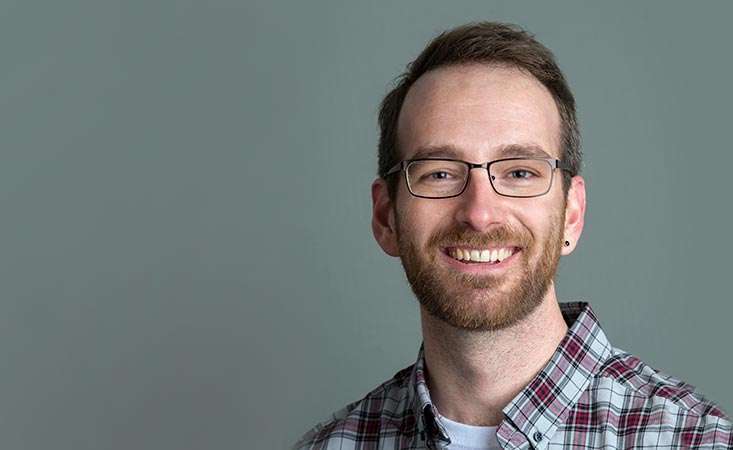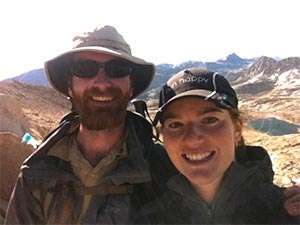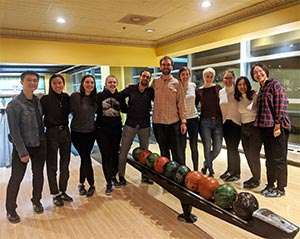
Alexander Muir, PhD
Editor’s note: We recently announced the recipients of the Pancreatic Cancer Action Network’s (PanCAN) 2020 research grants. Now we’d like to introduce you to each grantee to share what brought them to the field of pancreatic cancer research and what this funding means to them.
What do a park ranger, a nurse and a scientist all have in common?
All are careers considered by Alexander Muir, PhD.
“I didn’t really want to become a scientist,” Muir remembered, “but I had a great college professor who offered me a spot in her lab. Over time, I realized this is a great career!
“Becoming a scientist actually had a lot of what appealed to me about being a park ranger and a nurse when I was growing up: getting to explore, learn and think – and applying all that to help people.”

Muir and his partner Sarah enjoy the outdoors on a recent trip.
Muir, an assistant professor in the Ben May Department for Cancer Research at the University of Chicago, studied microorganisms in graduate school. Specifically, he was interested in learning how they respond to stress.
For his postdoctoral studies, Muir brought these learnings to pancreatic cancer.
“These tumors are actually under quite a lot of stress,” he said. “There is not a lot of oxygen or nutrients.”
When he established his independent lab, Muir and his team focused on the sparse nutrients that are available to pancreatic cancer cells.
Muir’s PanCAN Career Development Award will help them learn more about what pancreatic tumors consume and how the nutrients are digested.
“With this funding, we can tap this information to lead to new understandings about how best to disrupt cancer cells’ food supply and their ability to grow,” he said.
“To answer these questions, our lab will need to take a risk and build some new tools, which wouldn’t be possible without PanCAN support.”

The Muir lab’s annual bowling party, pre-pandemic.
When Muir’s lab was forced to shut down due to coronavirus disease (COVID-19) restrictions in March, his team used the time away from the lab to learn some new bioinformatics and coding tricks and to refine the work they wanted to do when they got back.
The lab recently reopened at partial capacity.
“PanCAN funding will help us hit the ground running now that we are back in the lab. We’ll have the resources and funding now to straight away start building new experimental tools and digging into what pancreatic cancer cells are eating,” Muir said.
Muir and his family have also used this pandemic period to take up a new sport – pickleball. (Check out how pickleball can become a DIY fundraising opportunity for PanCAN!)
Muir has a heartfelt message for PanCAN’s donors and supporters: “We are honored to have your backing, especially during all the challenges COVID-19 presents.
“We’ll work super hard to make the most of your investment.”















